Digest of the 8th Annual Conference] Creating "Comfortable Spaces" through Contact with Nature and Sound
2020.03.31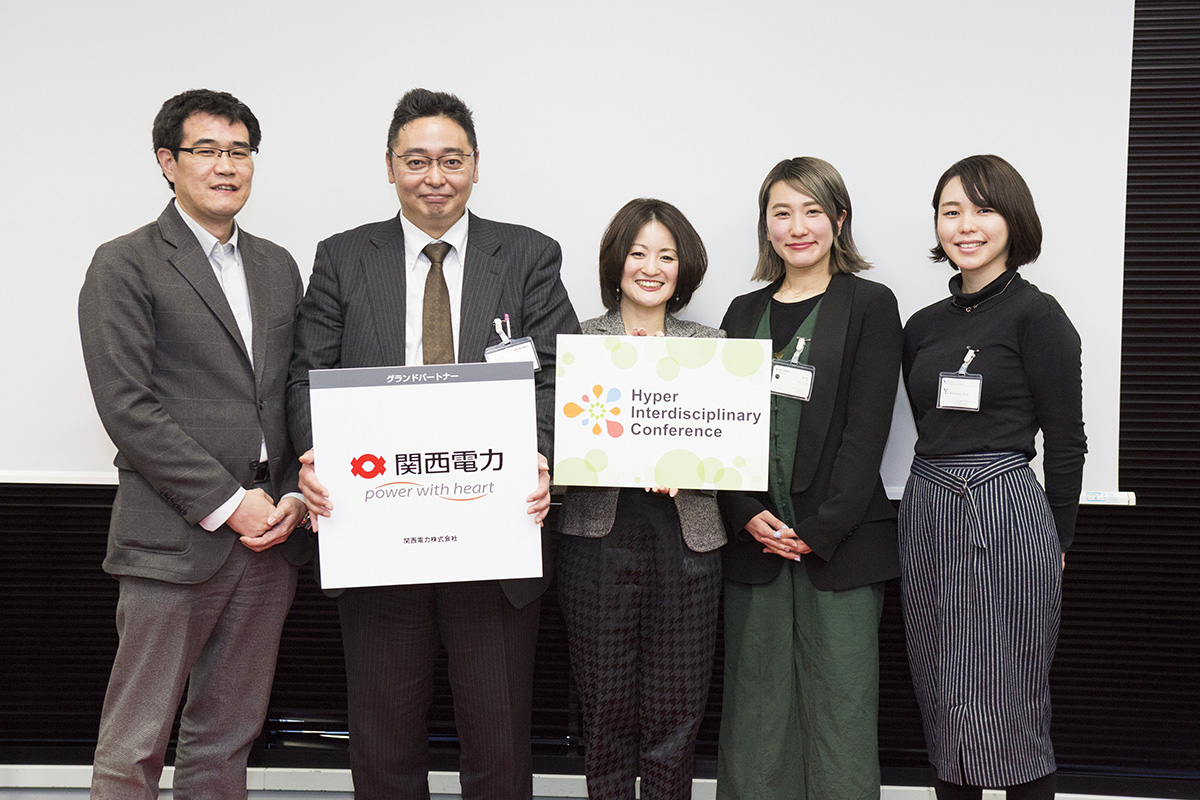
From left: Takashi Okazaki, Liberace (general facilitator); Soichi Nakao, Kansai Electric Power Company (organizer); Masako Ohira, associate professor at Shiga University,
D., Chiba University; Mikiko Kamata, National Center of Neurology and Psychiatry; Yui Matsumoto, National Center of Neurology and Psychiatry
Creation of "comfortable space" through contact with nature and sound
<2019年開催・第8回超異分野学会ダイジェスト>
Major overseas technology companies such as Amazon and Apple have applied the "biophilia hypothesis," which states that humans instinctively seek nature, to the design of their office spaces. There are also many known cases in which "sound" affects human cognitive functions and emotions. The relationship between nature, sound, and people should become clearer through multifaceted verification and quantitative evaluation of these effects, incorporating not only conventional psychological tests and physiological analysis but also newly developed measurement techniques. In this session, discussions were held on the possibilities and the creation of "comfortable spaces.
The 9th Annual Hyperdisciplinarity Conference will be held online on April 23, 2020.
The challenge for electric power companies to go beyond the boundaries of "electricity.
Liberace.Okazakirespect
We will be discussing the theme of 'Creation of comfortable space through contact with nature and sound. Kansai Electric Power Company (KEPCO) is our session partner, and the call for applications for the Livability Research Fund/Kansai Electric Power Company Award last June was the impetus for this session. Mr. Nakao is participating as the organizer. Now, please tell us about the purpose of this session.
Soichi Nakao, Kansai Electric Power Co.
My name is Nakao and I am with the Advanced Technology Laboratory, Technology Research Institute, Research and Development Office, Kansai Electric Power Co. I am currently engaged in research to contribute to the further development of the electric utility industry and to achieve the creation of new value beyond the boundaries of electricity. Currently, energy-saving momentum has become commonplace, and diversification of renewable energy and new energy sources is also progressing. In addition, the situation is such that significant growth in electricity demand is not expected in the future due to intensifying competition resulting from the full deregulation of the electric power industry and social issues such as the declining birthrate.
Under these circumstances, we believe it is imperative for our company to expand into new business areas beyond the framework of electricity. Under such circumstances, we are not only engaged in our main business of electricity, but also in telecommunications, international business, solving social issues, real estate, and lifestyle support. In this issue, I would like to focus on the areas of real estate, lifestyle, and lifestyle support.
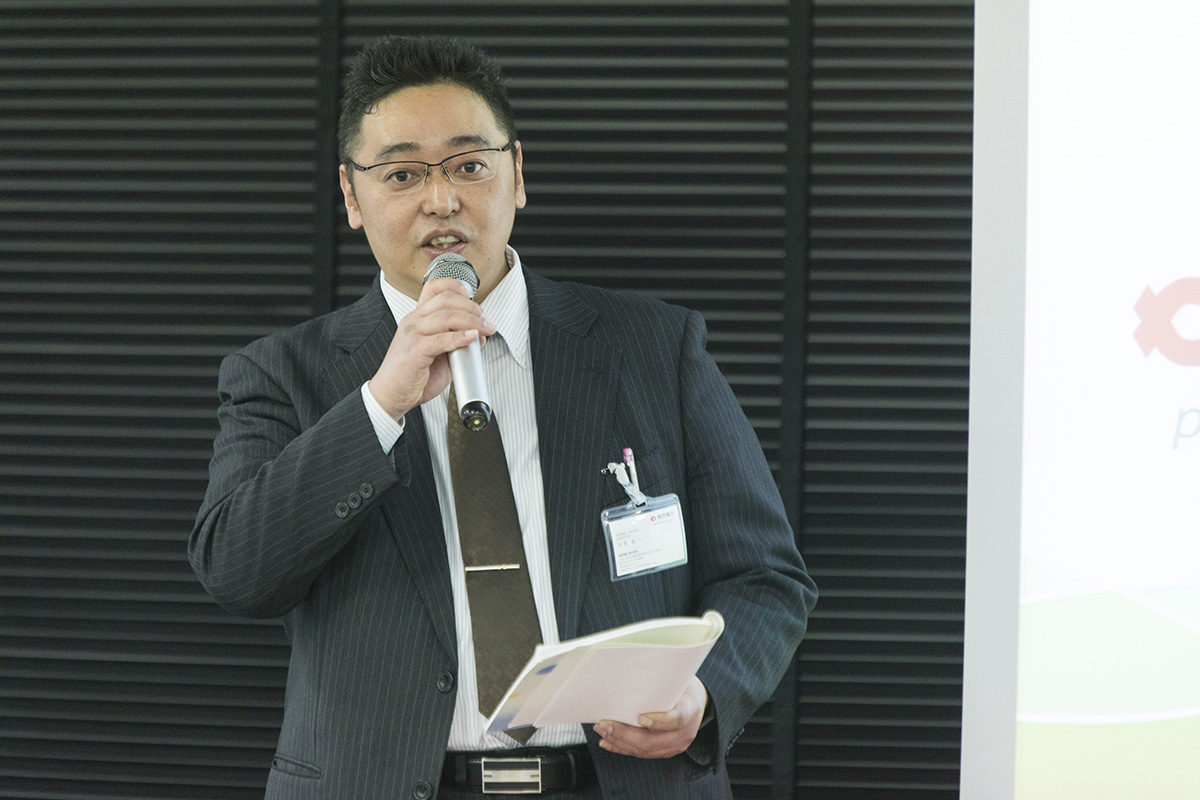
In the past, my institute has conducted something called "Comfort Creation Research". The idea is to create comfortable spaces using energy-utilizing equipment. However, manufacturers have their own ideas and technologies, so control mechanisms created by power companies are rarely utilized. There was a time when it was difficult to find meaning in this kind of research itself, with no practical application in sight.
In my previous workplace, I was working in an office that was a one-floor space in a rather large building. Although there was a sense of openness, I felt that it was not a very good space, for example, the atmosphere did not allow for reporting, communication, and consultation. Then I moved to the research center, and the environment became very nice. There is a large park with many trees in the neighborhood, and at work you can even see Mt. Rokko from the landing of the emergency stairs.
When I feel stuck at work or when I need a break from work, I take a moment to look at the birds, even though it is quite cold this time of year, and calm down or think about something. There is a large bird that lives in the park on the way to work, and I only see it about once every three days, but when I do, I get really excited and feel like I can get on with my day's work. When I have time to spare at work, I take a 10 to 20 minute break first thing in the morning before going to the office.
I asked you all to speak this time because of my own thoughts in such a living and working environment. First of all, Mr. Kamada impressed me when I selected him for the KEPCO Award for Livability Research. He is researching biophilic design, which he will explain in detail later. Don't you like to see greenery? I do. Next, Dr. Ohira. He has a technology for quantitative evaluation of stress. Next, Mr. Matsumoto. I am conducting research on various sounds. There is a river flowing near my workplace, and on days when I hear birdsong overlaid on the sound of the river, I somehow get more done. I think sound is also important.
Okazaki
Mr. Nakao himself feels that a space that is closer to the natural environment is more comfortable, and this session was planned to discuss how to create such a space.
It is a wonder that people are healed by greenery.
Okazaki
We would now like to ask the three members to introduce themselves, outline their research, and talk about what they consider to be a comfortable space.
Chiba Universitysickle-shaped rice fieldMikiko
I am Mikiko Kamata, a doctoral student in the Graduate School of Horticulture, Chiba University. On the other hand, I am running a company called Rokkakkei LLC. We are engaged in the greening business for offices and other spaces, as well as developing an indoor greening tool called Tanicushion. My vision is to elucidate the true nature of the comfort we feel towards plants and to bring people and plants closer together. My vision is to create a better society by increasing the number of comfortable spaces filled with plants.
First and foremost, I would like to introduce you to an indoor greening tool I am making, the Tanicushion. This cushion realistically reproduces the shape of a succulent plant. By using this as an indoor greening tool, it is a product that works on people's sense of sight to create a green and comfortable space. Even in offices where it is not possible to grow a lot of plants, we have received comments that the space has become very pleasant. Through this project, I realized that I needed to study the effects of plants in space, so last year I entered the graduate school of Chiba University and started my research.
This is based on the hypothesis of biophilia, which was proposed in 1984 and suggests that humans and animals have an innate preference for the natural world and nature. Based on this idea, there has been a recent trend toward workspaces with organic designs and spaces with lots of plants, where people can work freely.
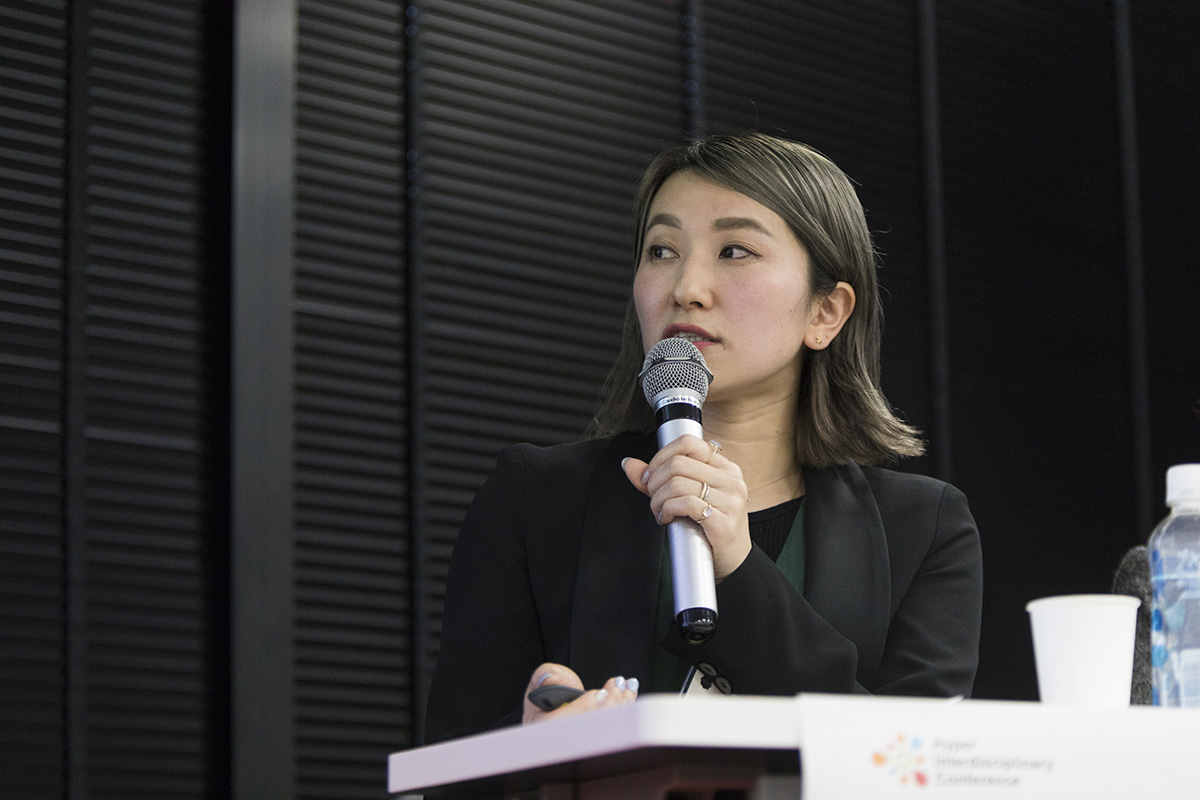
With the increasing urbanization around the world, we are in an environment that is physically separated from nature. I think this is the reason, in recent years, stress and mental illnesses have been on the rise, which is a social issue. This has led to a marked increase in interest in biophilia over the past decade. As for the history of research, a field such as research on the effects of plants on people began in the 1980s, but since it is still a new field, we believe it is necessary to accumulate scientific evidence and data.
In Japan, it is reported that approximately 60% of office workers are anxious or stressed about their work environment, and our laboratory is considering using plants as an approach to address this issue. We are conducting research on office workers and have scientifically proven the physiological and psychological effects that have resulted from the installation of plants in offices.
I would like to conduct research on actual companies, not only by placing plants in offices, but also by greening areas such as break rooms and relaxation rooms to help people heal, reduce stress, increase motivation, and boost creativity. We would like to demonstrate these things. To this end, we would like to collaborate with companies and researchers in different fields to collect data, and we would be happy to hear from anyone who is interested.
Lastly, I would like to talk about what I consider to be a comfortable space. There is a large greenhouse there where plants are cultivated. I wonder what the conditions are for such a greenhouse, and I think it has a view of the sky. It is a building with glass walls, so you can see the sky, natural light is pouring in, and there are all kinds of plants. The humidity is very high because of the plants. There is also an aroma, like the smell of soil. Also, in thinking about a comfortable space, I think it would not be so pleasant to just throw people into nature. I think that artificial greenhouses are good because they are safe and secure.
Is "comfort" measurable?
Okazaki
Next, I would like to ask Dr. Ohira of Shiga University.
Shiga University(former) Ministry of Economy, Trade and Industry (now Ministry of Economy, Trade and Industry)Masako.
My background is a little different. I had been doing research on genes for a long time, but I wanted to do something a little closer to health, so I went on to medical school for my master's degree in preventive environmental medicine, a field close to public health. However, I had a somewhat contradictory feeling that the number of healthy people was not increasing at all, even though I thought I was communicating ideal lifestyle habits to the general public. I realized that there was no tool that could make everyone healthier, so I went to the School of Engineering as a post-doctoral fellow and developed such a tool by myself. Then I went to the Faculty of Engineering as a post-doctoral fellow and developed such a tool myself.
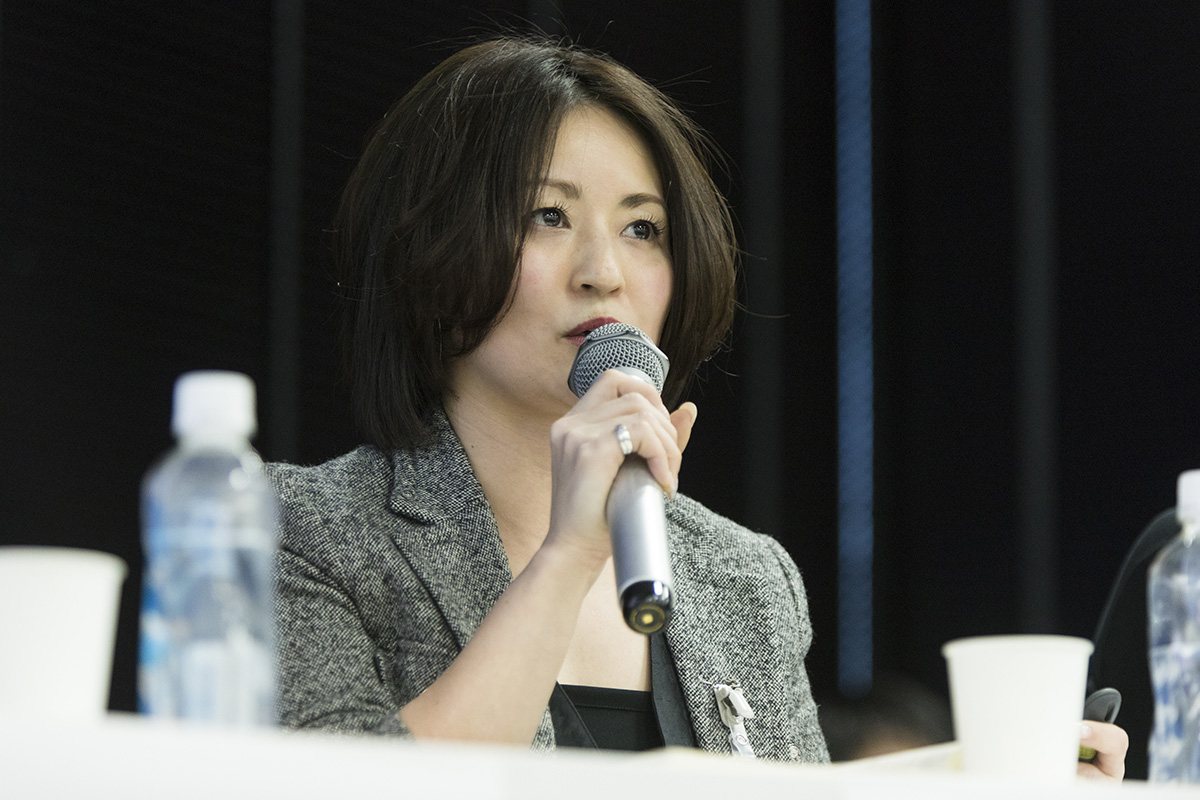
I know that a healthy life is important, but I don't want to make an effort, and I don't want to have a hard time. So, as is my research policy, I really want to create a space where people can become healthy just by being there, without having to do anything. I am conducting my research with the thought that in such a space, people would be able to continue without thinking about making efforts or anything like that.
The research is to investigate the effects of changing the environment on people, but first of all, we need indicators. Most of the people who measure physiological parameters are specialists in heart rate and the brain, and they specialize in their own research. However, I feel that this is contradictory. I feel that this is contradictory, because the condition of the heart and brain cannot be determined by their movements alone.
I myself have gone through various faculties, so I alone look at the brain, heartbeat, respiration, and also examine hormones. For example, when it comes to sleep, the most major method is to evaluate sleep quality using EEG, heart rate, eye movement, etc., but hormones have not been studied. However, hormones have not been examined because they are difficult to measure because blood must be taken during the entire time the patient is sleeping. The other method is to collect saliva, but there was no device that could continuously collect saliva while the patient was sleeping.
So, when I was in the engineering department, I actually made one. I found that there are differences in brain waves that do not appear in the EEG depending on the environment. I feel that by taking many indicators and analyzing them in an integrated manner in this way, we can make many discoveries.
Another thing I started last year is to look into the effects of long-term changes in the environment. We have done a lot of research on the effects of scents and sounds in just one night or just one day, but it still doesn't always work. We did a case study at a daycare center where we tried a longer-term study: we did a scent intervention study in 2, 3, and 4 weeks, and it wasn't until the third week that we started to see improvements in sleep.
We cannot make any assurances, as the research has many challenges, but if we had stopped after one day or one week, we would have ended up saying that sleep did not improve and that it was ineffective. In that sense, I think it is important to look at this over the long term, and we are currently focusing on developing technology to measure indicators from hair, nails, and other specimens.
As for me, I would like to see what I can say in this session in this area of evaluation. Thank you in advance.
A rich sound environment changes human behavior.
Okazaki
Finally, Mr. Matsumoto of the National Center of Neurology and Psychiatry, please.
National Center of Neurology and PsychiatryMatsumotolast name of a haiku poet
I belong to a research institute that is engaged in research on the causes of mental and muscular diseases and the development of treatments for them. Rather than research on people, I am conducting research using mice as model animals. Looking back on my childhood, I was a very delusional child, and I was delusional everywhere, which made it difficult for me to listen to others.
I could not communicate with people at all, and I began to wonder why I could not. At the same time, I was a bit interested in sound, so I did graduate school research on these two topics. And now I am studying the effects of environment on behavior.
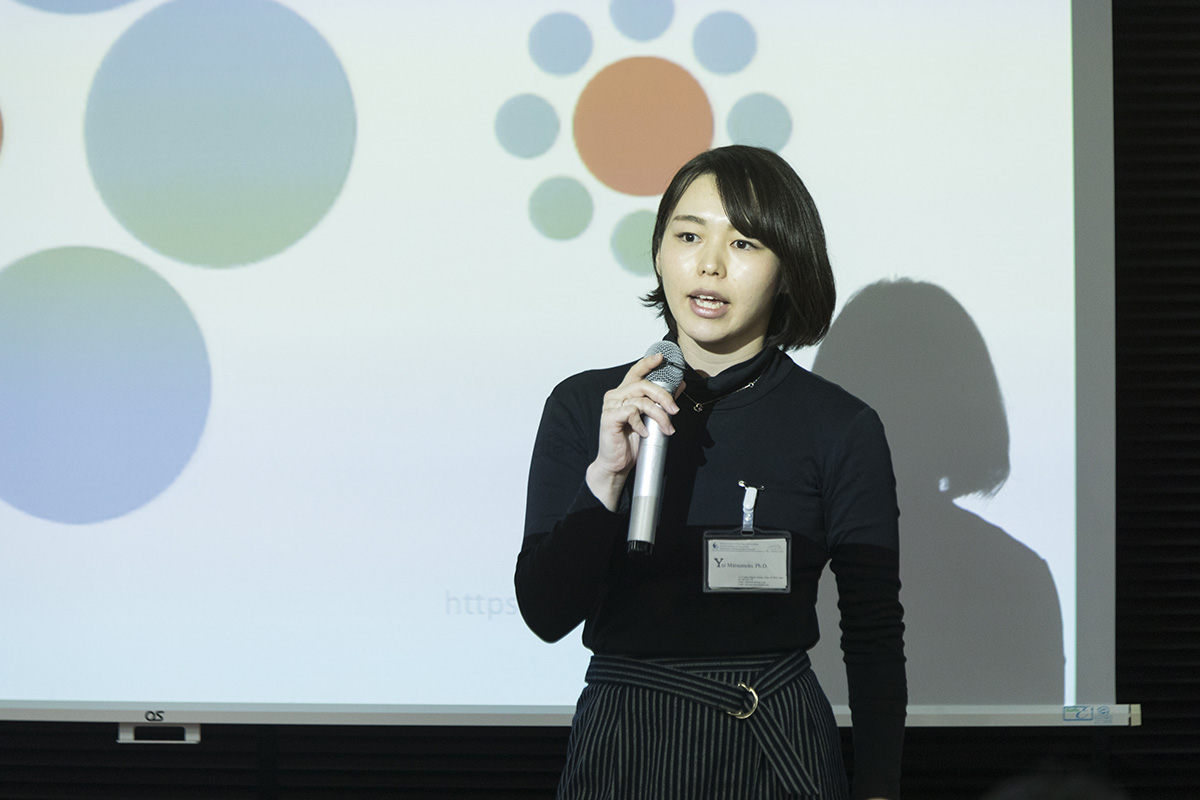
The environment can be defined in a few words as the things we see, hear, temperature, smell, etc. These things are all around us and we all perceive them in the same way. In reality, however, our perception and cognition systems are quite complex, and we know that the environment around us influences our perception and cognition, which in turn influences our behavior.
For example, a study conducted in a wine store showed that when background music was changed in a wine store, customers would spend only $2.00 on a bottle of wine if the music was trendy, but if classical music was played, they would want to drink a better drink. In other words, although we feel that our behavior is determined by our own will, it is in fact greatly influenced by the environment around us.
Sometimes the environment we live in is not really suitable. We live in a man-made environment, but we originally lived in a natural environment. These two environments have many differences in appearance and sound. One of them is the characteristics of frequency.
In an artificial environment, the frequency component is poor, whereas in a natural environment it is very rich. It is believed that an environment with poor frequency components leads to stress in our body and mind, mental and behavioral abnormalities, and developmental disorders. Therefore, our research department is attempting to restore this poor environment to a rich environment. If we can do that, perhaps we can improve the level of comfort and health.
In our laboratory, we play jungle sounds with richer frequency components to people, and when we do this, we see changes in brain activity, relaxation effects, stress reduction, etc. This is called a hypersonic effect, and it really has a variety of positive effects. There are various positive effects. We don't know why this happens.
Therefore, in my research, I am using laboratory mice to investigate this mechanism. I believe that comfortable environments are common to both animals and humans, and I am conducting research to find more comfortable environments for living organisms.
Finally, my idea of a comfortable space is one that is conducive to my imagination, as I am very fond of fantasies, and where I can discuss them with various people, brush them up, and create something better.
Okazaki
So your perception changes depending on the environment. By the way, classical music has a rich sound.
Matsumoto
In the case of classical music, the number of instruments is different, and the frequency components of the sound in the band used are also different. The complexity of these factors may be a factor.
Okazaki
Thank you very much. I think a comfortable space is an elusive theme, but I get the feeling that we can find a lot of things if we look at it from multiple perspectives. I think this is a theme that is suited to a very different field, so I will now move on to the discussion.
What is in the natural environment and what is not in the man-made environment.
end of the road
First of all, as I mentioned at the beginning, I love greenery. For me, a comfortable space is one where I can see greenery and the sky. And I like winter. It makes me feel dignified and relaxed. That is why I was so shocked when I heard your story. In today's artificial environment, I think it is possible that the stress society is caused by the environment itself.
However, although I love nature, I certainly cannot live in a jungle-like environment. I think it would be going too far to seek such nature without the convenience that exists in today's world. In other words, I think the best position is somewhere between artificiality and nature. Furthermore, I think there is something that has been lost as the number of artificial things has increased from places where there used to be a lot of nature. I hope we can discuss from that perspective.
Okazaki
What is that lost thing? What is it in terms of biophilia?
sickle-shaped rice field
Biophilic design is the next development from the concept of biophilia, and it has several elements. For example, curves are more important than straight lines, and complexity is more important than simplicity. For example, when you go into a forest or woodland, there are many different shapes and forms. For example, when you go to a forest or woodland, there are all kinds of shapes and forms.
In the evolutionary process, we paid attention to such things in ancient times, and it is said that we developed attachment to plants and nature. I think they are built that way because it is the most efficient way, but in fact, there is a big difference. I think we have gone from an organic to an inorganic form.
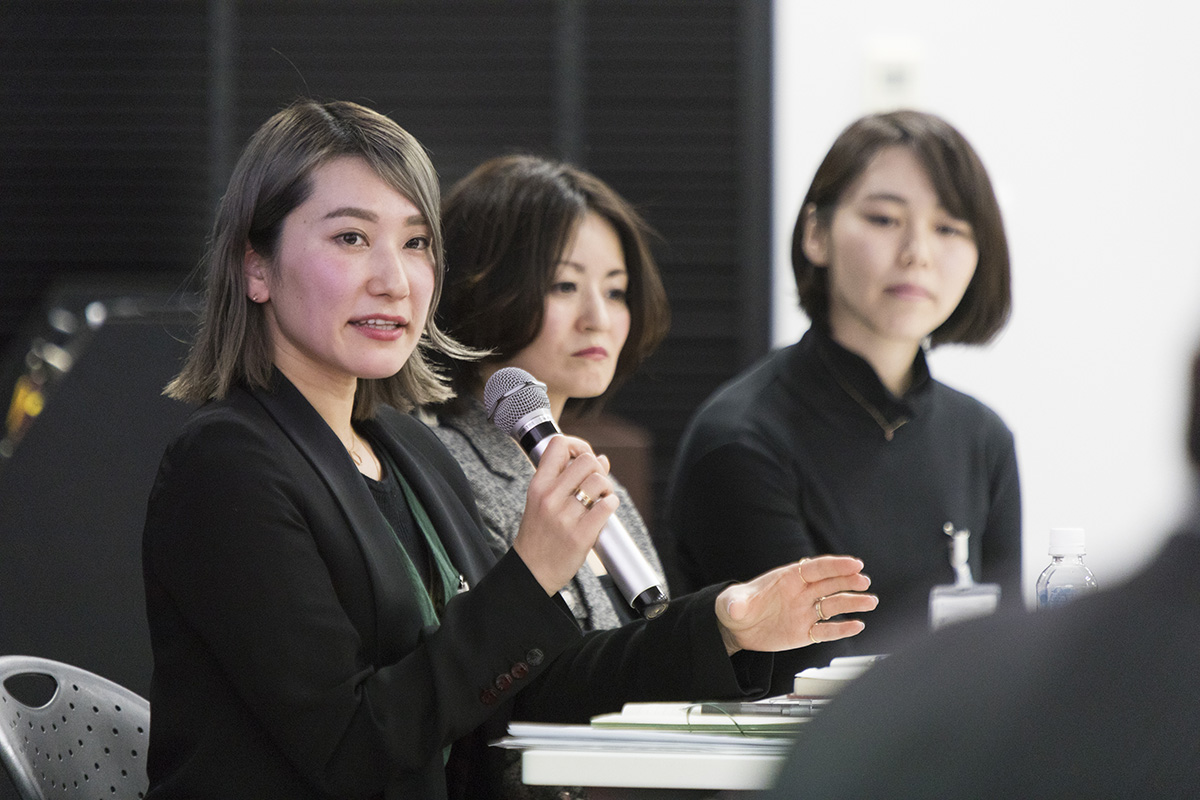
(former) Ministry of Economy, Trade and Industry (now Ministry of Economy, Trade and Industry)
I have never thought of space in terms of research before. I feel that we are losing the natural rhythm of lightening in the morning and darkening at night. The same is true for temperature. Normally it is hot in summer and cold in winter, but because the temperature is set too high, it may be causing problems in our daily lives. I myself feel that there is such a tendency, especially with light, when I study sleep.
Matsumoto
I am with you both on the basic idea. Like this conference room, it is mostly linear. Compared to nature, there is obviously less information. This linear state with little information is easy to predict, so it is easy to use, but on the other hand, when something new and complex or a stimulus arrives, it may respond to it excessively.
Artificial environments are created in accordance with human perception and cognition. However, there are many things in nature that we cannot perceive or are not really aware of, so we should consider the influence of such things.
What have people lost in the artificial environment?
end of the road
We believe that the environment affects psychological, physiological, and behavioral aspects. As we move to an artificial environment, I feel that we have lost something, or rather, people have become mechanized. I always think about this in the workplace, but I feel that people are working like machines, without much emotion, or in short, that they have lost their emotions. In short, I feel as if people are trying to avoid feeling stress, so they don't show their emotions and work like machines. I think the environment has a great influence on emotions.
For example, your backpack was hit on the train. That alone is enough to make you feel irritated and want to yell, "What the heck is wrong with you? In order to suppress that kind of thing, I would go to the park in the morning to calm down a little. I feel that the artificial environment has a great influence on my emotional ups and downs. I would like to ask you how artificial and natural environments affect people.
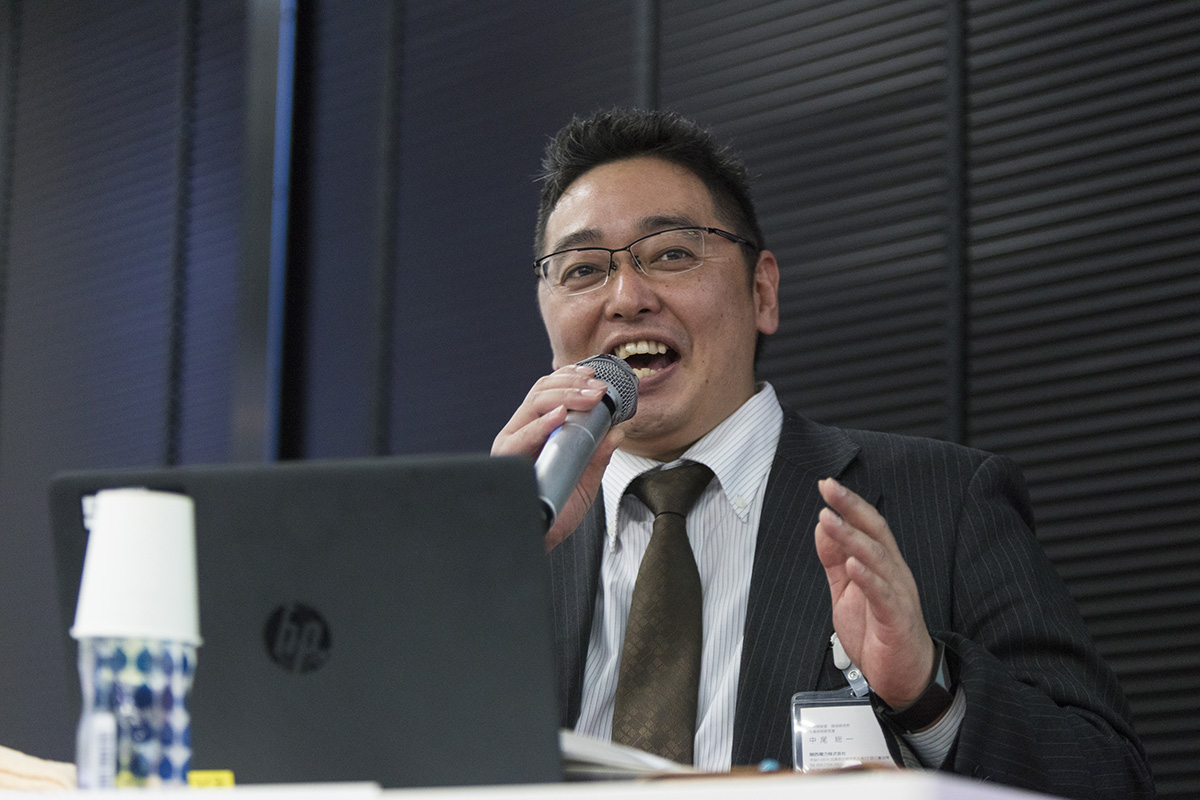
sickle-shaped rice field
I originally grew up surrounded by plants in a very rural area in Tohoku. When I started living in Tokyo, I rode crowded trains and experienced working in an office all the time, but I lost my energy. When I rode the crowded trains, I was too tired to give up my seat to others. However, when I am going to climb a mountain on my day off, I feel energized to climb even the steepest mountains even though no one asked me to do so. I feel that there is a relationship between the environment and energy.
(former) Ministry of Economy, Trade and Industry (now Ministry of Economy, Trade and Industry)
I think that the rhythm of life is gradually disappearing in this artificial environment. For example, I am in the Department of Education, so I do research on children, and the second most common cause of non-attendance at school is disruption of the rhythm of life. Have you ever experienced this? If I don't go to bed, I get in a bad mood. Even students often say to me, "Sensei, you are in a bad mood today. I think that the disruption of the rhythm of life causes changes in emotions and behavior, and this has led to social problems.
Matsumoto
I would like to talk a little about the effects of enriching the sound environment. First of all, it has a considerable effect on the immune system, and it is also related to the stress hormones and other hormonal conditions mentioned by some of you. Furthermore, as mentioned earlier in the experiment, it has been found that sound can be heard better and images presented with sound can be seen more clearly. I believe that it is related to our condition and health, and also affects our evaluation of some stimuli, such as a word from the other person, and how we perceive such things.
end of the road
How about the audience? What have people lost in the transition to an artificial environment?
audienceA
I believe that if a space is too comfortable without too much stress, people become vulnerable to stress, and that kind of tolerance is what we have lost.
audienceB
I'm thinking the same thing. Also, though, even if we eliminate the stressor and create something to replace nature and make it a healing space, it may feel good temporarily, but is that really enough to heal?
end of the road
I said stress in one word, but I think stress has both good and bad sides. For example, my dreams, my goals, these things are stressful because I feel pressure. But if you don't have them, you can't move forward. So I think it is good to be able to deal with stress and face it, not to eliminate it.
audiencec
When I was in Germany a while ago, I saw children with elite education playing in nature. I think parents and teachers are watching the children from afar, but even in dangerous situations, they do not immediately touch them. All kinds of things happen, like cutting your hand on a thorn, but the children are motivated to solve that trouble by themselves.
The children trained in this way have a very high growth rate in the future, according to empirical experiments. It is said that children trained in this way develop a challenging spirit, or a brain structure that allows them to overcome even minor problems. Therefore, I think it is very important for children to grow up interacting with a variety of things, such as worms and snakes, when they are young.
end of the road
Thank you for your valuable input. I hope the space is not for communication, but that the space can help with that. I think communication is very important too. I think it is easy not to associate with other people if you look at it only from your own perspective, but I also think that it is often faster to talk with other people when considering various things.
Stress is lower if you take care of the plants yourself rather than just putting them there.
Matsumoto
As Mr. Nakao mentioned earlier, stress is not necessarily a bad thing. All stimuli are stressors, and the important thing is that they should not be too much or too little. So I think that moderation is the most important thing. In particular, increasing the amount of nature, plants, and other complex things is good in terms of moderating the environment to a certain degree.
In a low-stress environment, as I mentioned earlier, we can overreact to new stimuli. I think it is important to learn how to deal with these stressors and how to overcome them by facing them, and to apply this knowledge to the next time a new stimulus comes along.
sickle-shaped rice field
There is already a trend that plants are good to have in a space, but data from our laboratory shows that choosing and taking care of a plant yourself can lower stress and increase attachment to it, which in turn increases vitality for work. This is one of the data that we have. I think it would be a good idea to have a system that allows people to interact with plants in the space.
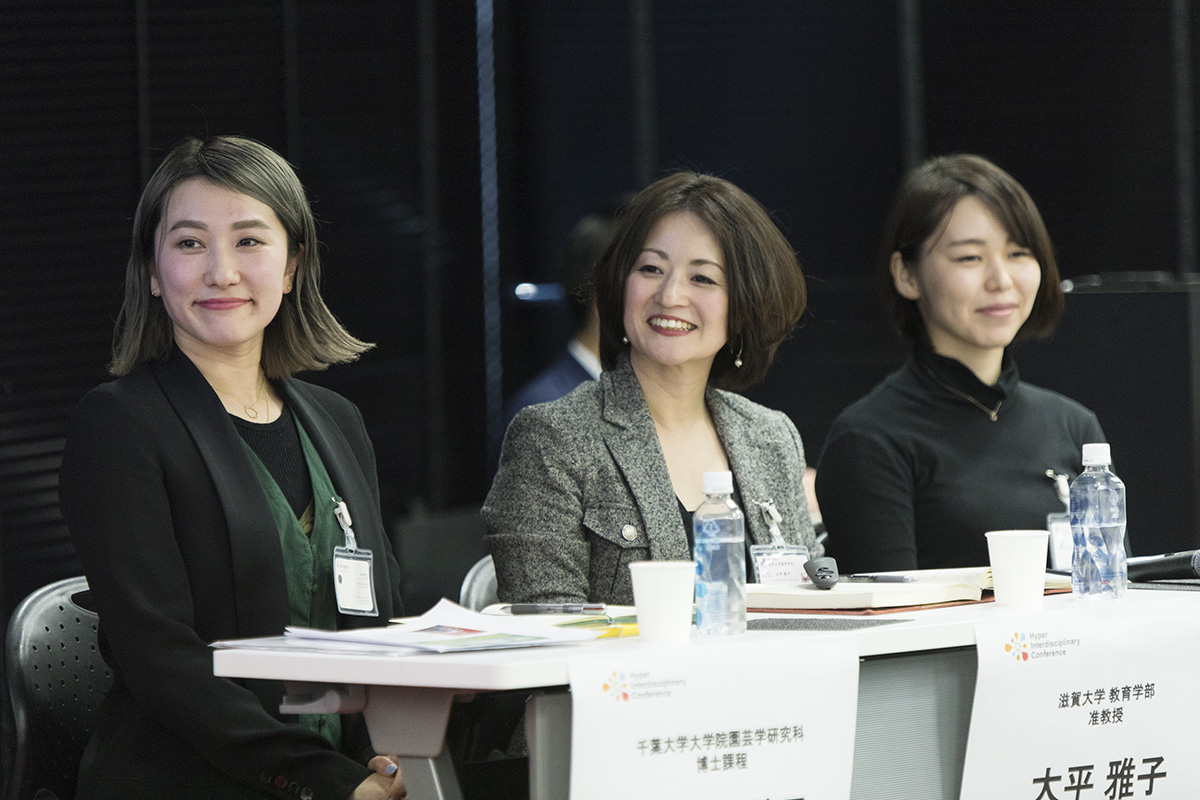
(former) Ministry of Economy, Trade and Industry (now Ministry of Economy, Trade and Industry)
I believe there was a psychological study done in the past to completely eliminate stress, and although it is probably no longer ethical to do so, I believe the data showed that people who cut off all environmental stimuli, such as sound and light, retired or went slightly insane within a few days. In this sense, I believe that stimulation is very important for human life in many ways.
end of the road
I was thinking while listening to Dr. Ohira's talk, when examining this kind of data on human environmental response, is it better to look at the movement of a single piece of data, or is it better to look at the correlation of multiple pieces of data over a long-term span? Do some of the responses change instantly with changes in the environment?
(former) Ministry of Economy, Trade and Industry (now Ministry of Economy, Trade and Industry)
Yes, I agree. For myself, I am not so sure that correlation is all that is needed. If you take a large number of indicators, you may find one that moves differently or does not correlate with others. I think that there may be hidden meanings in such things, so I sometimes think that we should not necessarily assume that things that do not correlate are meaningless as we look at the overall data. That is precisely because we are now able to handle quite a lot of data, I think it is actually important to take a hard look at data that has been truncated.
Okazaki
Can you measure the loss of energy? When is it energetic?
(former) Ministry of Economy, Trade and Industry (now Ministry of Economy, Trade and Industry)
It depends on what you consider energy.
Okazaki
That's right, isn't it? It is difficult, isn't it? It's hard to know what kind of rhythm of life is best.
(former) Ministry of Economy, Trade and Industry (now Ministry of Economy, Trade and Industry)
But I think I can get some of the rhythm, though, because the activity meters are much smaller and so on. I don't think there is a right answer.
Okazaki
We can get data, but how do we interpret it? The immune system may be like what is being immunized, but what is being measured? It is the same with hormones. I guess you have to take blood in this area.
(former) Ministry of Economy, Trade and Industry (now Ministry of Economy, Trade and Industry)
Blood. It depends on what you want to see, but I don't think it necessarily has to be blood in some cases. Saliva might be good, or urine, or even hair or nails if it's a long term thing.
Okazaki
Also, you mentioned cognitive ability...can it be measured?
(former) Ministry of Economy, Trade and Industry (now Ministry of Economy, Trade and Industry)
There are probably several recognitions. Yes, there are. However, cognition is a very broad category, and there are some detailed cognitive functions, so if those subdivisions are matched with such already existing measurement methods, it may be possible to measure them.
Okazaki
I see. I would like to finish this last question, but this is the one you mentioned, Mr. Matsumoto. I think there are some positive reactions, such as seeing things as beautiful, or reacting favorably to something when you receive it.
Matsumoto
Yes, I think it would be possible. For example, it would be possible to evaluate the images on a questionnaire, asking the audience to rate whether the images looked better without sound or with sound, and how much better the images looked.
Okazaki
Thank you very much. I think we have identified some things that we can use as indicators if we try to evaluate them. The fact that we also have to look at other things that are not responding means that we have to take a comprehensive view of people. I personally think it would be good if we could conduct such research in the future, even if it means taking as much data as we can.
A future in which humanity has acquired a "comfortable space".
Okazaki
There is one more question I would like to ask you. Today, we are under stress because we have gone too far from the natural environment to the artificial environment, and there is an atmosphere that we are leaning back a little toward nature in the leaning back. But I think that this kind of movement will probably be born in accordance with the times, fluctuating in this way. Could you tell us your thoughts one by one about what kind of society you think will emerge when people are able to create and control their own comfortable spaces?
end of the road
I said earlier that I get irritated easily, but I think that in a space like this, people can hone their human skills, or how should I put it, they can be kinder to others when they interact with them. In short, I think it will open up a kind society where people can have time to think about themselves and others, and think about others.
sickle-shaped rice field
It is very difficult, but I think that if an ideal state of society is achieved, it will be a society that allows people to have their own rhythms and feelings, and not have to go to work on days when they just don't feel like it. I wonder if there is a better society that is more attuned to the needs of each and every individual.
(former) Ministry of Economy, Trade and Industry (now Ministry of Economy, Trade and Industry)
I also have a desire to create a society where people can live more freely and be themselves. However, to put a negative spin on it, I wonder if creating such a world will also create new problems. Personally, as a researcher, I think so.
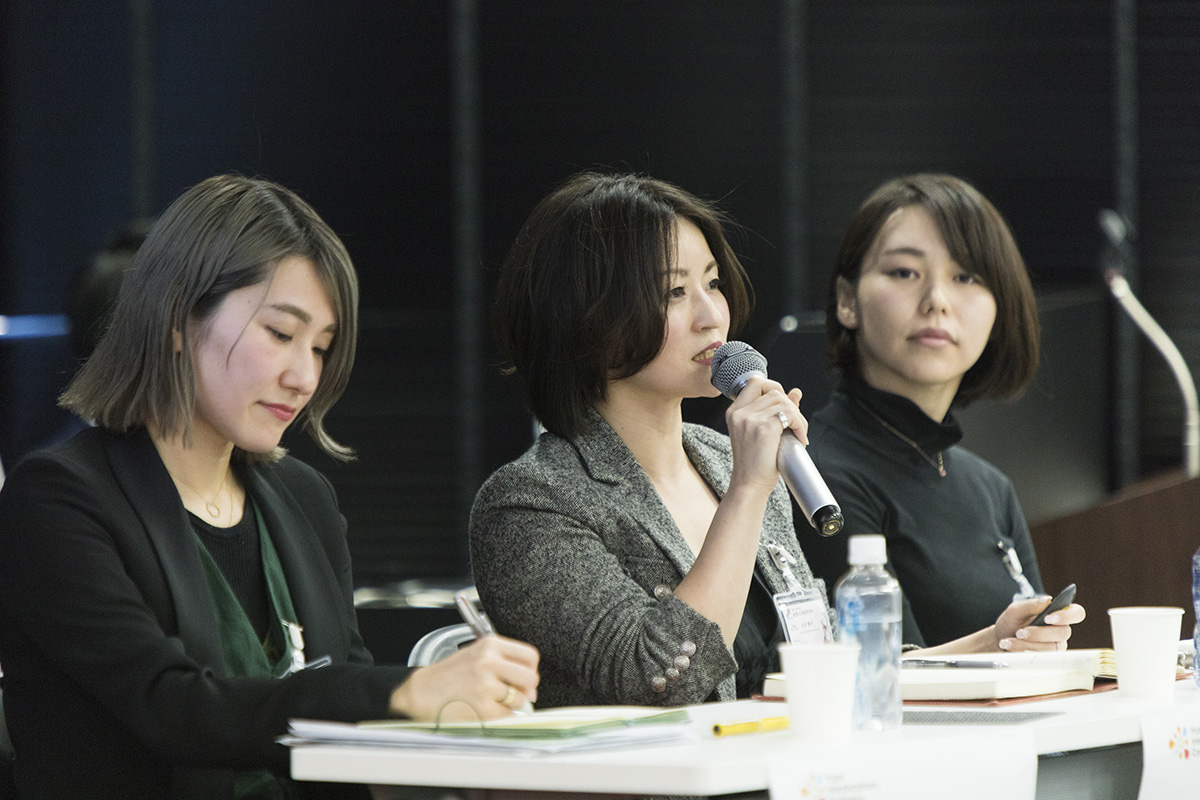
Matsumoto
I think creativity is more important than anything else, although I share most of your views. As I have mentioned many times, today's very simplified society has been created as an appropriate environment for streamlining and making relatively simple tasks more efficient. However, robots will probably take over such simple tasks in the future, and I think that we humans should develop our "free creativity" a little more in terms of how we can still beat AI.
My idea of a comfortable environment is one that enhances the creativity of people and allows them to be themselves and to think carefully about their own ideas. If we can create such an environment, or rather, I think we must create such an environment since robotization and AI are already advancing.
Okazaki
Thank you. If we can freely control space, there is a possibility that we may create people who are too comfortable and don't think about anything. Right now, it is a bit too bleak to think creatively. The world may be a place where people are forced to lean back and move toward a more comfortable and creative space, which in turn may produce people who don't think at all. I think there is a place where we can settle down somewhere, but I feel that there is a space that is required in each era. Thank you very much. I would like to ask Mr. Nakao, the organizer, to summarize.
end of the road
We believe that a space is not something that creates people, but is only meant to help them think. If there is no help, that is fine, but if people's activities are facilitated by the presence of such a space, we believe it is meaningful to aim for such a space. This is why we would like to promote research on comfortable spaces at KEPCO. I believe that if various people are interested in this kind of thing and work together on research, it will advance as a field, so if you are interested, please contact us. That concludes my presentation. Thank you very much for your time today.

D., Graduate School of Horticulture, Chiba University
Mikiko Kamata(Mikiko Kamada
He completed his graduate studies at the Graduate School of Agriculture, Hokkaido University. His major was molecular plant breeding. After completing graduate school, he was involved in planning and development for a vegetable seed manufacturer, then studied indoor greenery and decoration and became an independent plant director. 2015, he launched Rokkakkei, LLC. and has been engaged in the space greening business, developing products such as indoor greening tool Tanicushion®️. Currently, he is studying "the relationship between humans and plants" as a doctoral student at a graduate school.

Associate Professor, Faculty of Education, Shiga University
Masako Ohira(Mr. Masako Ohira
Completed the doctoral course at Osaka University Graduate School of Medicine in 2011. In the same year, he became a researcher at Nagaoka University of Technology's Center for the Development of Top Runners in the Fusion of Industry, Academia, and Government. He became a lecturer at the Faculty of Education, Shiga University in the same year and an associate professor at the same university in 2015. He has been consistently engaged in research on stress assessment using hormones in saliva since his graduate school days. Recently, he has been engaged in research and development of methodology for stress assessment without using saliva, such as psychological stress assessment using biochemicals derived from body tissue fluid, nails, and hair. D. in Medicine.
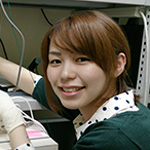
National Center of Neurology and Psychiatry
Matsumoto Yui(Yui Matsumoto)
D. degree (Doctor of Philosophy) from the Graduate School of Arts and Sciences, the University of Tokyo. He is currently engaged in research on sound as a researcher at the National Institute of Neuroscience, National Center of Neurology and Psychiatry. His research focuses on the mechanisms of social behavior such as vocal communication in rodents and the effects of acoustic environments on living organisms.
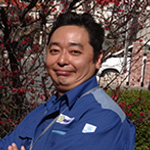
Kansai Electric Power Co. Research and Development Office Technical Research Institute Advanced Technology Laboratory[present (e.g. government, administration) Fundamental Technology Laboratory((Research Support)]
Soichi Nakao(Nobuichi Nakao)
After graduating from Osaka Prefectural College of Technology, Department of Industrial Chemistry, he joined Kansai Electric Power Co. He was engaged in maintenance management of thermal power plant (mainly management of fuel, water quality, exhaust gas, and wastewater). In 2000, he was transferred to the General Technical Research Institute of the company (currently Technical Research Institute), where he was engaged in evaluation research of energy utilization equipment such as eco-cutes and PEFCs, and then in charge of research planning and planning. Currently, he is engaged in planning for the start-up of new businesses.
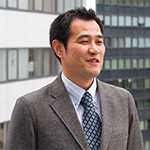
Leave a Nest Co., Ltd. General Manager, Human Resources Development Division
Takashi Okazaki(Takashi Okazaki)
Doctor of Science. D. in Science from Osaka University. After working as a special researcher at the National Institute of Advanced Industrial Science and Technology (AIST), he joined LIVERNESS. In addition to his diverse research experience at universities, major textile manufacturers, and national research institutes, he was engaged in science and technology promotion planning at a local government affiliated organization. Mainly engaged in local seed discovery, human resource development, and regional acceleration.

